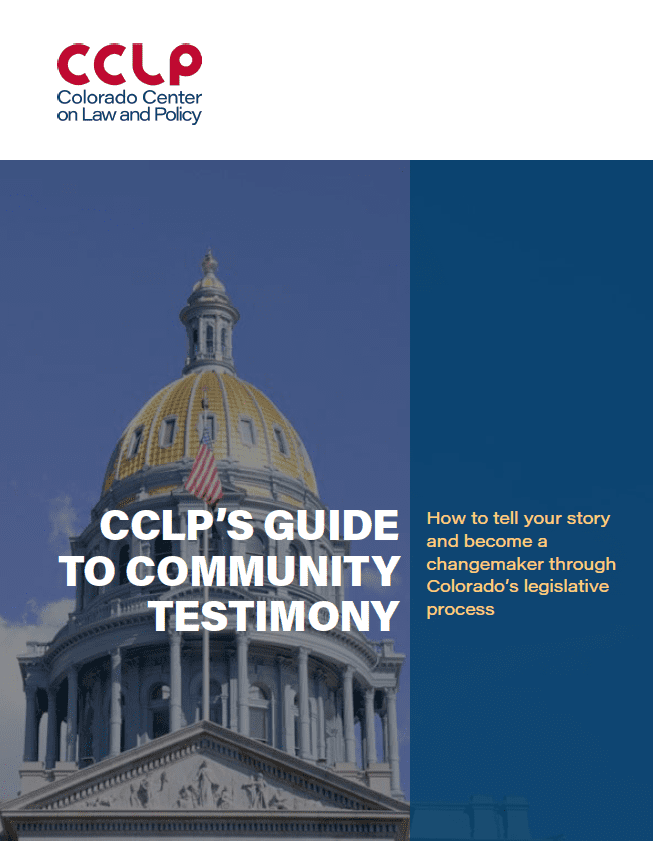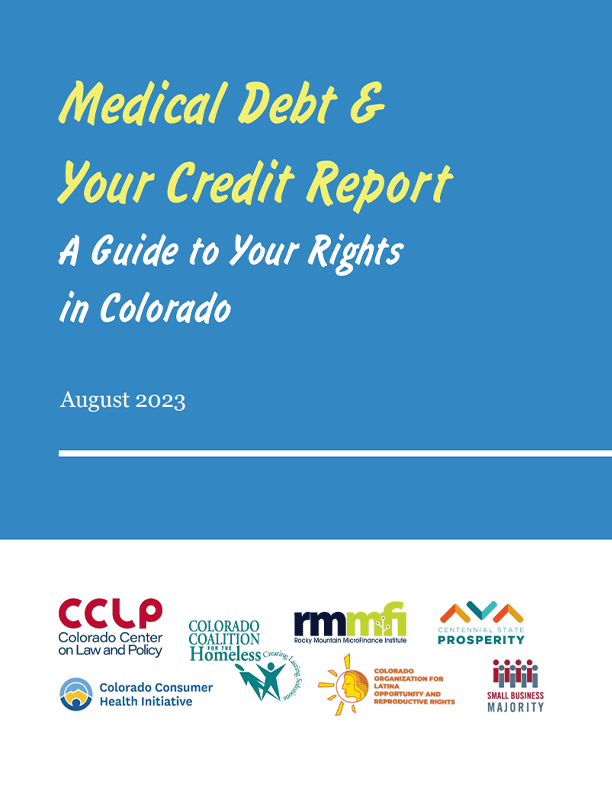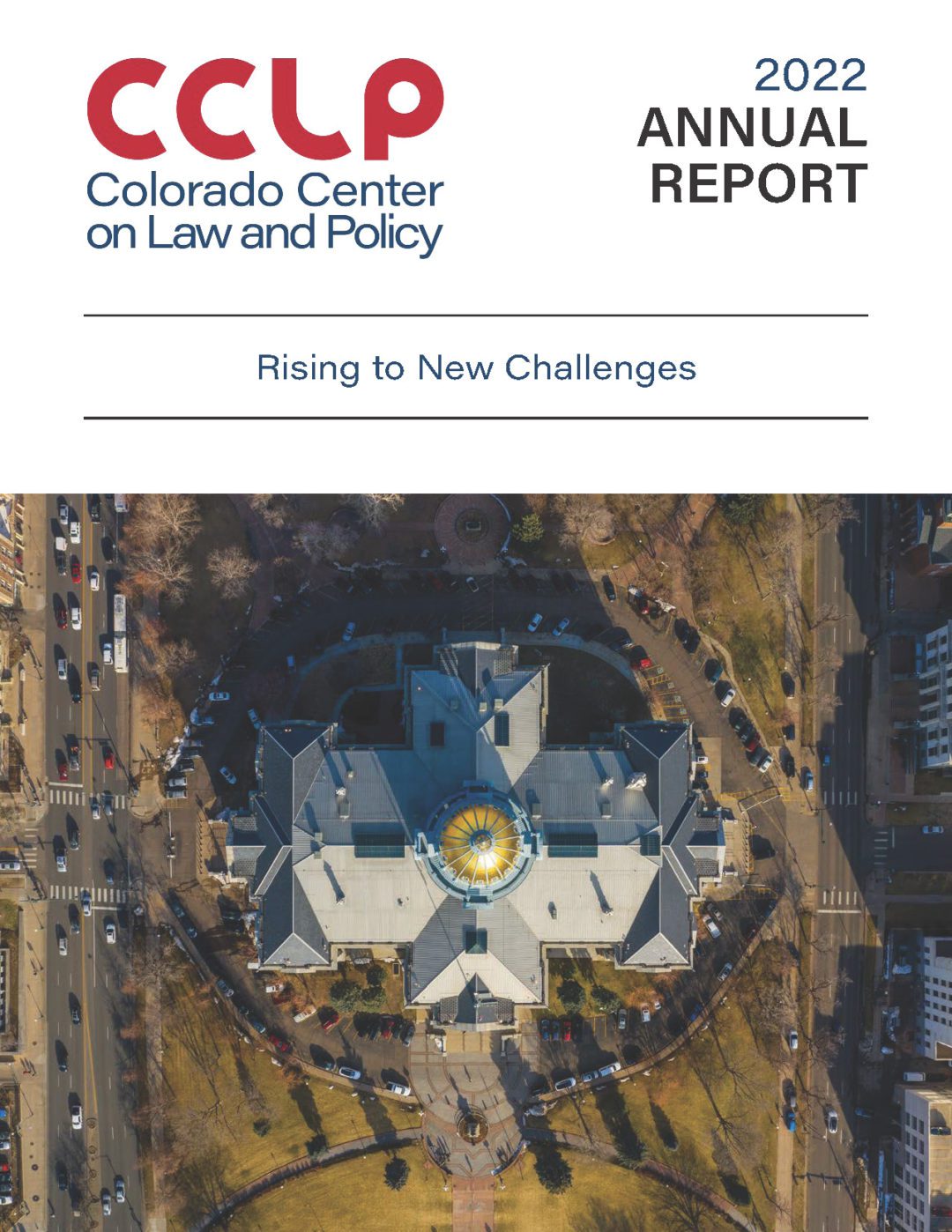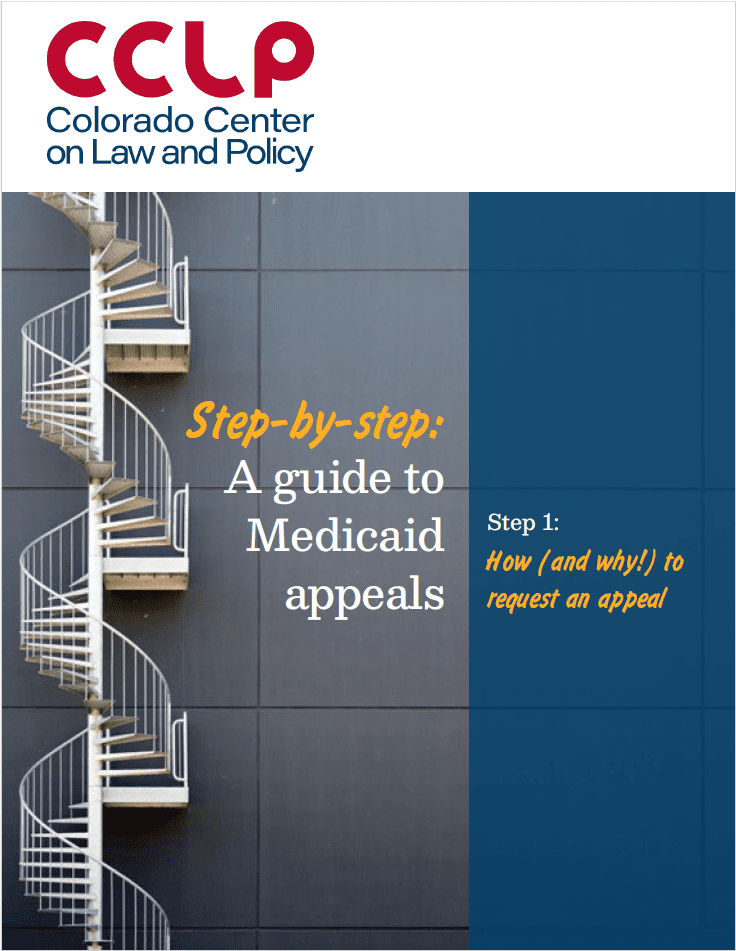CCLP: Colorado’s Powerhouse for the Poor
For fifteen years, the Colorado Center on Law and Policy has worked hard, with notable success, to enhance justice and economic security for low-income Coloradans. CCLP has been the premier organization conducting research, advocating, educating and, if required, litigating on behalf of low-income Coloradans.
Since it began, CCLP has excelled in legislative advocacy. CCLP has been instrumental in the passage of much legislation enhancing economic security, from raising basic cash assistance grants for Colorado Works recipients by 20 percent after two decades with no increase to protecting and expanding Medicaid services and eligibility for vulnerable Coloradans. CCLP also led the advocates’ charge for the elimination of special tax credits and exemptions to help raise revenues during the heart of the great recession, thereby protecting K-12 and other important funding from more extreme cuts. CCLP was a major force in the establishment of the Colorado Health Benefit Exchange (now called Connect for Health Colorado) and has been the lead stakeholder advocating evidence-based policy before the legislature’s Economic Opportunity and Poverty Reduction Task Force.
CCLP’s research and publications have been invaluable resources to opinion leaders and decision-makers. Among many other things, CCLP publishes two powerful data-driven reports: The Self-Sufficiency Standard for Colorado and State of Working Colorado. Over a decade and a half, CCLP has also secured major legal victories, from establishing a constitutional right to notice for welfare recipients facing loss of benefits to challenging the failed implementation of the Colorado Benefits Management System.
Highlights of CCLP’s work in 2012 include close engagement with the Colorado health benefits exchange. CCLP served as a powerful consumer advocate in the development of the Connect for Health Colorado insurance marketplace. CCLP also originated and led the coalition that supported passage of the bill establishing the Hospital Payment Assistance Program. That program requires hospitals to distribute information about their charity care policies and offer discount programs to any uninsured Coloradans under 250 percent of the Federal Poverty Level.
CCLP also focused on coalition building in order to more effectively advance our family economic security agenda. For example, CCLP convenes Skills2Compete Colorado, a coalition of unusual suspects that advocates for policies promoting middle-skill jobs. The Skills2Compete coalition was instrumental in the 2012 passage of the Skills for Jobs Act, an innovative bill designed to align Colorado’s education and training opportunities with well-paying jobs in demand and reduce the state’s skills gap.
CCLP has cemented its place, and looks forward to its future, as a powerhouse for the poor.









